#you guys really should differentiate democracy and dictatorship
Explore tagged Tumblr posts
Text
I like geggism for how unexpectedly clever and wild it is, like yeah! Fuck the government, the state and the federation! We're all Gegg!
But if I was to take it realistically, then insaneduo are the best candidates. It may be, as other people are saying, a cultural divergence where we just don't believe in such idealistic movements as a "council" or a "let's everyone take the decisions together" sort of thing, but honestly if it were, like, real life politics and some candidates proposed such thing I'd just laugh and roll my eyes at it.
But this is just a block game, with a fake electorial system and that it's in no way to be taken seriously, so yeah, I'm voting for Gegg for sure!
#i just wanted to say it because i find it really interesting#qsmp#<- main tagging just in case#don't mind me tho#i just really needed to ramble about it lol#so it may not even be coherent lol#qsmp br#probably gonna delete this later#discourse#?#idk really#but honestly#reading some of your inputs on insaneduo#you guys really should differentiate democracy and dictatorship
10 notes
·
View notes
Text
Tools, Work, Condition – and other Predicaments
Transcription of a talk in the context of the class "Open Access. Opposing the Violence of Corporate Software?", 13.12.2016
As an attempt to contextualize some of the concepts introduced during past classes, I want to jump off a discussion about the text "Software Takes Command" by Lev Manovich and share some of my thoughts on Design–designed tools, their instrumental power, – possibly violent power and propose methods to collectively comprehend and/or counter some of those forces, we have been talking about.
The interconnectedness of our critical tool research and the topic of work condition, the concept of labor or as Silvio Lorusso proposed – the entreprecariat, seems self-evident. Being an immaterial and nomadic worker myself, dealing with time as my most important commodity I am very interested in the critical examination of the tools that accommodate my precarious practice–or maybe enabling exactly that practice.
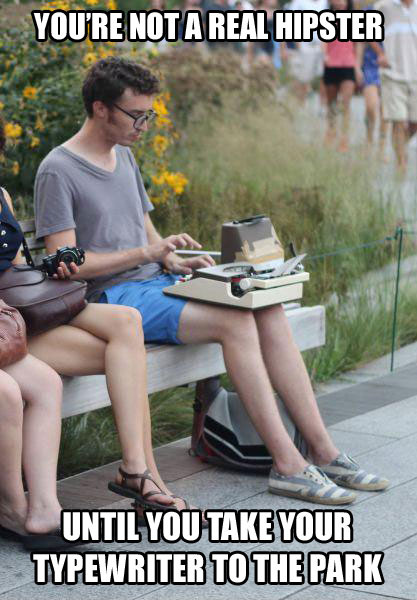
(Typewriter meme from: Florian Cramer “What is post-digital”)
According to Hannah Arendt, the ancient understanding of life being differentiated in public and private live, in which the public realm would be the space to express yourself freely (free from any biological necessity), changed with the appearance of authorities like the Church. With the introduction of privatization of public realm the matter became more complex. Life from then would be differentiated in labor, work and action. Labor in that regard is human activity directed at fulfilling human needs, and therefore never reaches an end, as needs are continuous. Work however has a clearly defined start and end and results in some durable object, a tool or a consumable product.
Action, –for example speech, is enabling human relationships, is free of any boundaries and doesn’t need to meet human needs or anticipation.
In a time where I am enjoying my flexible lifestyle, and realizing that I can do so because of a range of extraordinary privileges, Arendt’s differentiation between Labor, work and action are my guide, helping me to test and measure the actual status of my condition (work/life). Having to or being able to perform at all times, attending openings, giving talks, seeing and seeking opportunities, I am working on creating my work environment, being commissioner and commissioned, living leisure and being productive, on vacation and doing over hours, all at the same time.
While monetizing my smile, interaction, gestures I am curious: How do we organize and claim worker’s rights if our practices are floating in space, indefinable, uncatchable lost in time zones?
"The precariat consists of those who feel their lives and identities are made up of disjointed bits, in which they cannot construct a desirable narrative or build a career, combining forms of work and labor, play and leisure in a sustainable way"
Guy Standing
(Quote: from Silvio Lorusso “Precarity Feels”)

I find myself in a condition where I am not sure: Am I sustaining myself, entertaining myself? Am I acting in solidarity or opportune? Am I getting exploited or do I exploit others and myself?
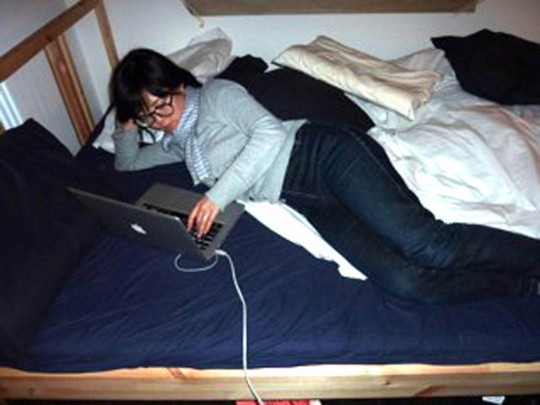
(Images from Werker Magazine filed under: domestic work, home office, http://www.werkermagazine.org/domesticwork/home-office-3/, and http://www.werkermagazine.org/domesticwork/office/)
I believe that software has a big part in creating that condition. According to Manovich, that condition is not exclusive to cultural workers–also flex workers, temporal workers who are rented out to work for companies, nomadic workers, and any worker in the service industry are facing similar challenges. Since software is replacing physical technologies, it makes us create, distribute, store and share cultural artifacts.
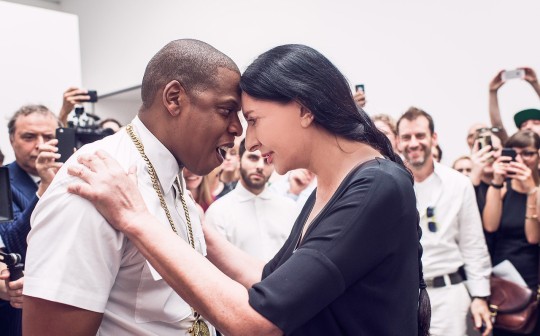
Software as Social Glue
(Image: Marina Abramovic & Jay Z: Who is the instrument here? Who is worker? Who is the object?)
I wrote a small script based on "Dowse. The Privacy Hub of the Internet of Things", a software developed by Amsterdam-based Hacker collective Dyne.org. I try to address questions such as: "Am I a user that has an experience right now or am I a worker that is dealing with a condition?" The script would parse up the information my devices send out and received unrelated to my actively usage. Connecting to the Dowse box I could visually and in real-time read these connections. Without even turning on my phone, it was constantly sending and receiving data from and to Facebook. I basically facilitate this platform constantly, without actively interacting with it. So what my script did was creating invoices as PDF files of 0,01€, directed to Facebook, with every connection my device made.
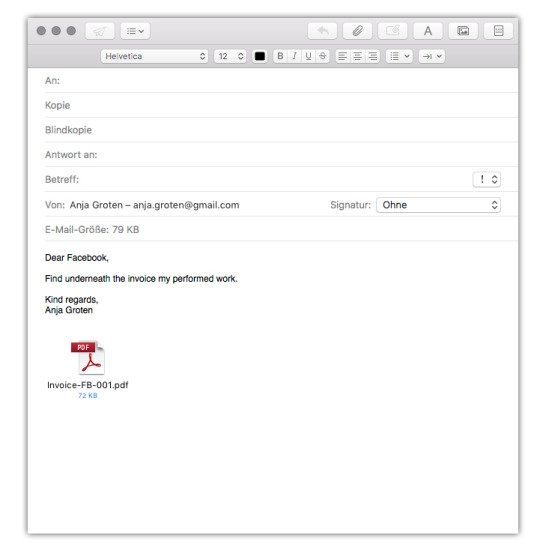
(Image: Screenshot from my email client: outcome of a workshop by dyne.org, as part of the “HDSA2016. At Work. If you are so smart why are you so poor?”)
Silvio called for collectivization by constructing an evolving platform "the entreprecariat, which fabricates its own slogans, memes and chants".
In our context, here at the Sandberg Institute we are a collective by definition, – a collective that shares space, times, – infrastructure, with certain common goals, which may not be identified yet.
Interestingly Silvio’s talk stirred up some concerns amongst you. You shared worries and ideas about your work, work conditions and the future of design practice. During your time at Sandberg you will be testing, defining and refining the possibilities of design work, which is a very important underlying prospect considering you may be shaping your own working conditions in the future – in and outside of the Sandberg Institute, striving to sustain a critical practice while dealing with neoliberal work forces.
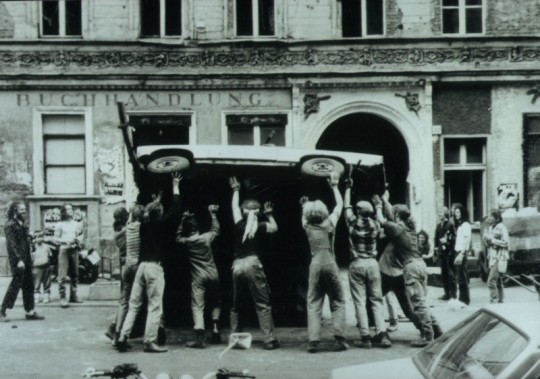
(Image: Our Own Private Germany: https://medium.com/matter/our-own-private-germany-6ce44ac93a7b#.xkbmehpwt)
Having starting studying at the Sandberg myself during a period of growing sense of responsibility for the work I create, I am now wondering if I would be able to actually persist corporate forces within my work. And if I won’t be able to, how could I start participating myself in the work I create?
“We designers . . . can begin to build a meaningful aesthetic culture if we are willing to prepare ourselves for a new learning experience, and we cannot learn unless we participate”
(Quote from: “Design and Human Values,” a legendary Aspen design conference that took place in 1957, the American designer Richard Latham interrogated the ideas that designers cater to and the kind of responsibility they should take)
I therefore want to emphasize and encourage you to use my classes and your studies at large as a test site in order to counter act notions such as efficiency, productivity, and velocity.
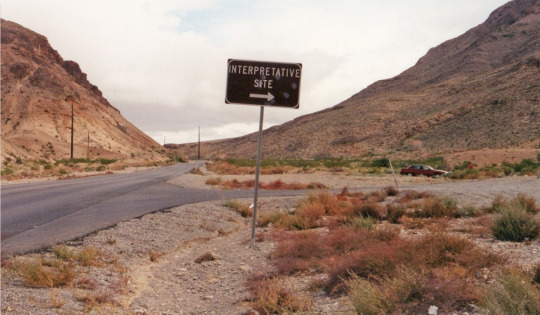
(Image from: CLUI Morgan Cowles Archive managing the image resources of The Center for Land Use Interpretation)
All the time you are in school, you learn through experience how to live in a dictatorship. The most constant and thorough thing students in school experience — and learn — is the antithesis of democracy. (…)
The Teenage Liberation Handbook Grace Llewellyn

(Image from: Tim Ivison & Tom Vandeputte, http://www.metropolism.com/en/features/23004_build_your_own_university)
In http://www.e-flux.com/journal/31/68212/general-performance/ Sven Lütticken quotes Franco Berardi:
“contemporary “cyber time” being marked by our feelings of insufficiency about never having enough of the damn thing (time) to accomplish all the things we should“.
So let’s create shared moments of commitment, time camps (Sven Lütticken) and temporary autonomous zones (Hakim Bey) to be inefficient together.
(Quote from: Matt Hern http://theanarchistlibrary.org/library/matt-hern-the-promise-of-deschooling
In an economy where work becomes more dependent on immaterial factors self-performance becomes harder to relate to and evaluate.
With moments like the H&D Summer Academy I aim to address the lack of software literacy within my own practice. Methods of physically experiencing machine-learning processes, appropriating and embodying logics of algorithms have proven rewarding and eye-opening learning experiences.
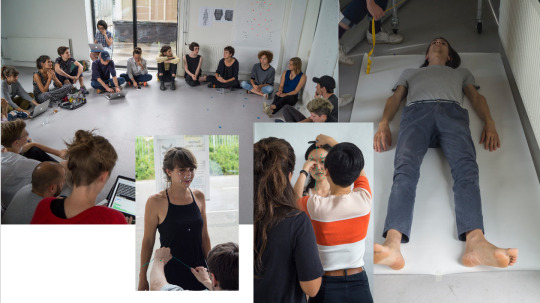
(Image: Workshop "Internet of Bodies" with Simone Niquille and Carina Namih. The participants were equipped with a map that Google uses to train their biometric prediction algorithms, and made communal data self-portraits at life-size scale. More: http://hackersanddesigners.nl/#/Internet%20of%20Bodies)
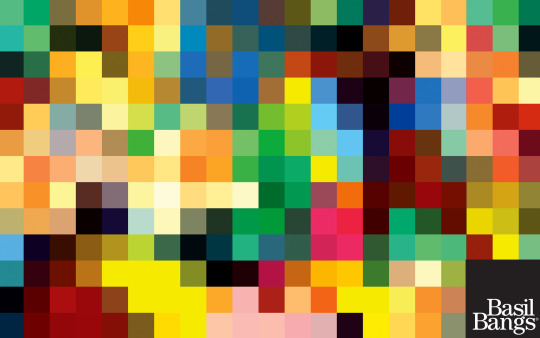
Image from: http://feelgrafix.com/group/pixel.html
The "Pixel" is an examples of GUI (Graphic User Interface), which is regarded as presumable discrete as much as the word “Data”.
However someone did come up with it. Someone with an identity, a gender, preferences, worries, intentions decided at some point that a pixel is a square.
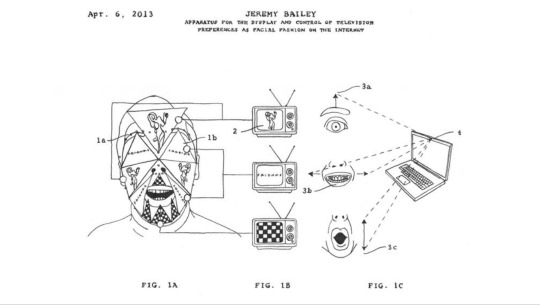
(Image: Jeremy Bailey – Challenging practice Jeremy Bailey: Famous New Media Art Patent Office http://www.newmuseum.org/exhibitions/view/jeremy-bailey-famous-new-media-art-patent-office)
We need to overcome the understanding of Computer Science as something that is ultimately true. It’s something that is part of culture; with all problematic that come with history. I am therefore curious about the assumptions and models about me as a user, my needs and the needs of my environment. Can I trace those assumptions encoded in “discrete” GUI?
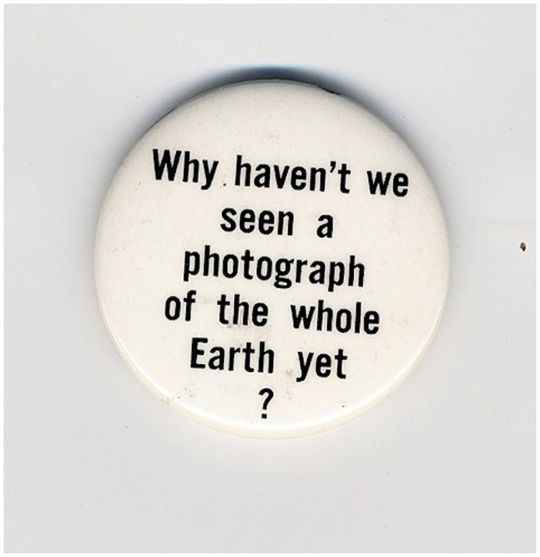
(Image: "Why haven’t we seen a photograph of the whole Earth yet?" button by Steward Brand. http://create.adobe.com/2016/4/18/the_whole_earth_the_story_of_an_image_that_changed_the_world.html)
In order to make responsible decision we need to be able to relate.
Stewart Brand launched the “Why haven’t we seen a photograph of the whole Earth yet?” campaign in 1965.
After NASA released the image, he used it on the cover of his Whole Earth Catalog. The image became the root of a global environmental consciousness.
Before people perceived the earth as flat (not literal) and infinite, the root of all their misbehavior.
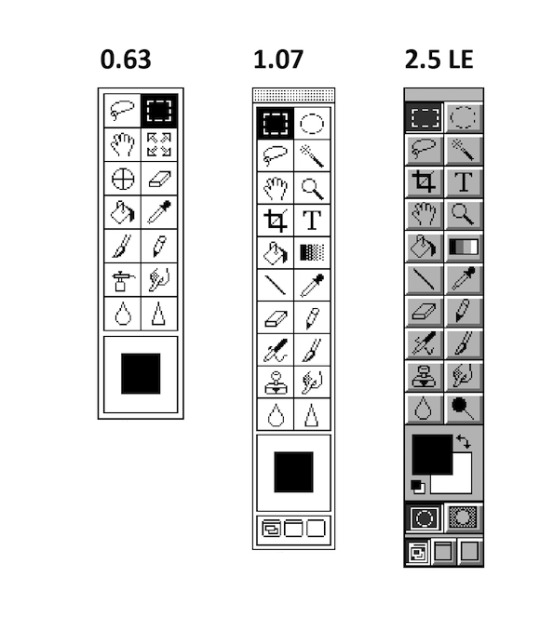
(Picture from Lev Manovich, Software Takes Command)
I am usually really excited about new technology and to curious to not try new stuff but I do wonder how we can remain critical within the current pace of innovation, - neural networks training themselves, increasing complexity of algorithms …
I believe the collective effort could be the answer. A way to approach this is by creating these time camps and committed spaces of inefficiency.
2 notes
·
View notes